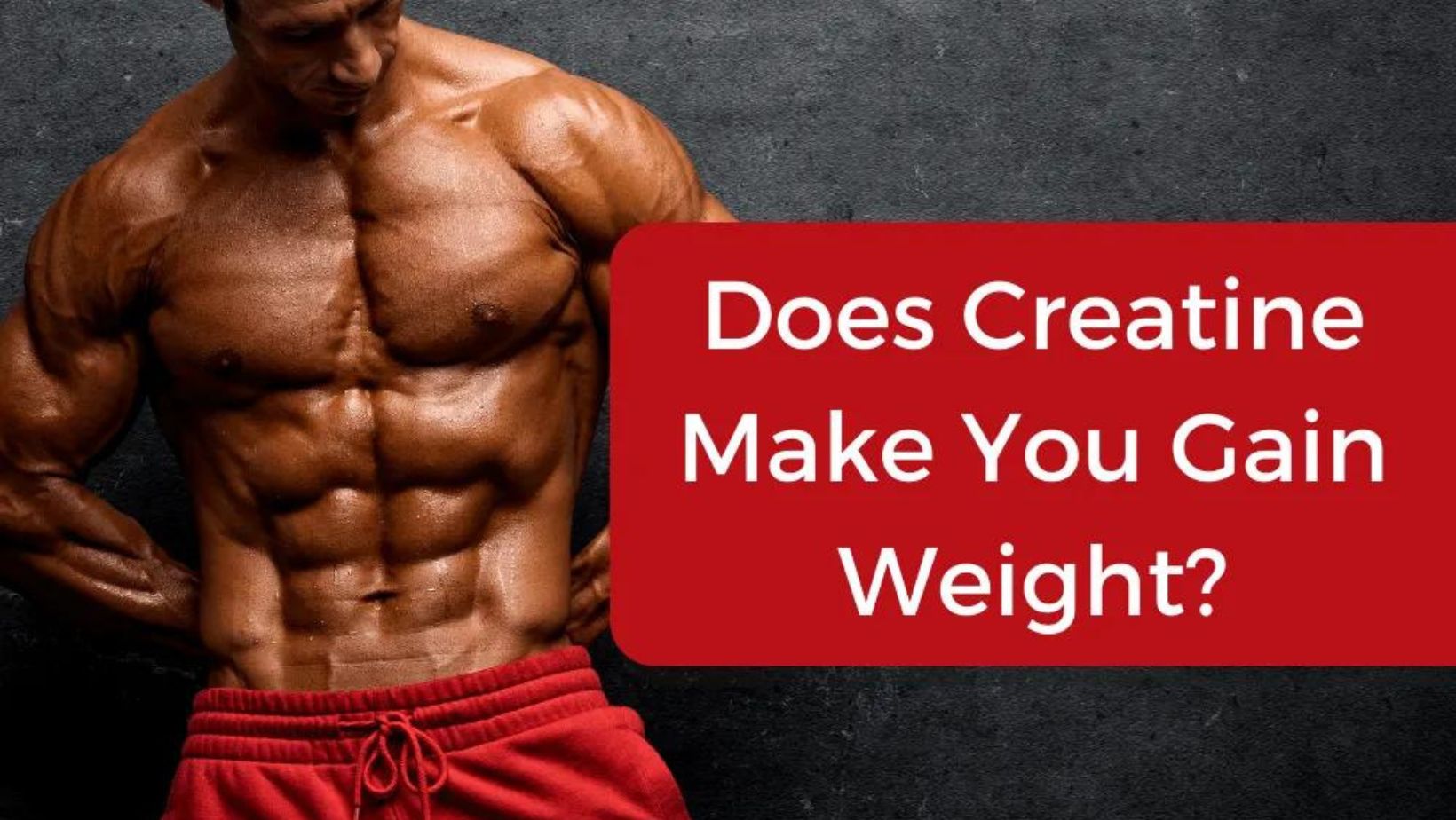Supplements are always the subject of many inquiries, especially those with a track record of effectiveness like creatine. Pre-workout supplements that also include flavors, sweeteners, caffeine, and other substances frequently include creatine powder. Alternatively, it can be bought as pure creatine powder made without any extra ingredients. If you are thinking about taking the supplement and wondering does creatine make you gain weight or not- this write-up will assist you.
Does Creatine Make You Gain Weight?
Creatine is one of the most popular sports supplements used by athletes and bodybuilders to increase strength and muscle mass. But a common question is – does creatine make you gain weight? The short answer is, creatine can cause some weight gain due to increased water retention in the muscles, but not actual fat gain. Here are the reasons why creatine may make you gain weight:
-
Water retention in muscles
The primary reason creatine can make you gain weight is that it draws more water into your muscle cells. When you supplement with creatine, it helps pull water from other parts of your body into your muscle cells. This helps increase protein synthesis and provides more fuel for contractions. This additional intracellular water causes your muscle cells to swell slightly and makes them look bigger. On the scale, this extra water weight will show up. The amount of water weight gain varies, but can be as much as 2-5 pounds in the first few weeks of supplementing.
-
Increased glycogen storage
Along with excessive water, creatine also helps store more glycogen (the carb fuel source for muscles) in your cells. This extra glycogen adds a bit more weight as well. Like water weight, glycogen weight is not actual body fat, just additional fuel stored in the muscles for better performance.
-
Building lean muscle mass
With consistent strength training, the extra cellular hydration and glycogen from creatine supplements helps boost gym performance. If you are looking for does creatine make you gain weight or not, you should know that it can lead to faster gains in lean muscle over time. The lean muscle weight accounts for a small portion of the overall weight gain from creatine. But it’s one of the benefits, not a negative side effect.
How To Minimise Weight Gain While Taking Creatine?
Now that you know does creatine make you gain weight or not, let’s have a look at how you can minimise the weight gain:
1. Take a conservative loading dose
When you first start taking creatine, a “loading phase” is recommended to saturate your muscles, taking around 20 grams per day for 5-7 days. This maximizes water retention and causes rapid weight gain of up to 5 pounds. To minimize this, take a smaller loading dose of 5-10 grams per day for the first week instead.
2. Cycle on and off creatine
The continuous use of creatine can lead to a buildup of water weight over time. Consider cycling off creatine for 4-6 weeks after an 8-12 week “on” cycle. This allows your body to normalize water balance before starting again. The break prevents gradual water retention, while still benefiting from creatine for muscle growth during the on period.
3. Increase protein intake
Taking in extra protein while on creatine can help offset fluid retention and increase muscle protein synthesis. Shoot for around 1 gram of protein per pound of body weight daily. The extra amino acids will help drive more water into the working muscles instead of subcutaneous areas.
4. Lower carbs slightly
Reducing your carbohydrate intake a bit can help mitigate water retention from creatine supplementation. As glycogen stores increase, so does water volume in the muscles. Slightly lowering carbs will reduce glycogen levels, decreasing intramuscular water. Don’t cut carbs too drastically or it will impact performance.
5. Increase unsaturated fats
Healthy fats from fish, nuts, seeds, oils, etc. can help control circulating estrogen. Higher estrogen levels can exacerbate water retention. Boost your unsaturated fats to help keep estrogen in check, minimizing excess body water.
6. Perform HIIT training
High intensity interval training enhances cardiovascular fitness, burning fat while retaining lean muscle. The greater calorie burn will prevent excess fat gain typically associated with creatine weight gain. Plus, HIIT helps reduce overall body water percentage. Maintaining workout intensity will maximize results.
Frequently Asked Questions
Q: What are the benefits of creatine?
A: Taking creatine supplements can increase strength and muscle mass by providing more fuel for high-intensity contractions.
Q: When should we take creatine?
A: The optimal time to take creatine is post-workout along with a protein and carbohydrate source to maximise absorption by the muscles.
Q: What is creatine loading?
A: Loading involves taking larger doses of creatine, around 20 grams per day for 5-7 days. Before trying creatine loading you must be aware of does creatine make you gain weight or not.
Q: Does creatine cause hair loss?
A: There is no scientific evidence showing creatine causes hair loss or baldness. High testosterone or dihydrotestosterone (DHT) levels are more likely to blame for hair loss.
Q: Should creatine be taken with food?
A: Creatine absorption does not require food for uptake by muscle cells. However, taking it with a meal can help minimise potential stomach upset.
Q: Is creatine safe for women?
A: Yes, creatine is safe for women. But a lower dose of 5-10 grams per day is recommended for women to reduce water retention effects compared to men.
Q: Are there contraindications with any medications?
A: Creatine may interact with diuretics, anti-inflammatories like ibuprofen, and stimulants like caffeine.
Overview
This shall clear your doubts on does creatine make you gain weight or not. Although gaining strength and muscle is a top goal for many taking creatine, the rapid water weight gain is concerning and discouraging. Knowing that this initial bloating is temporary water retention, not fat, helps creatine users understand the supplement’s effects. Being informed on proper dosage, diet, and training to minimize fluid accumulation allows for optimal muscle building results.


